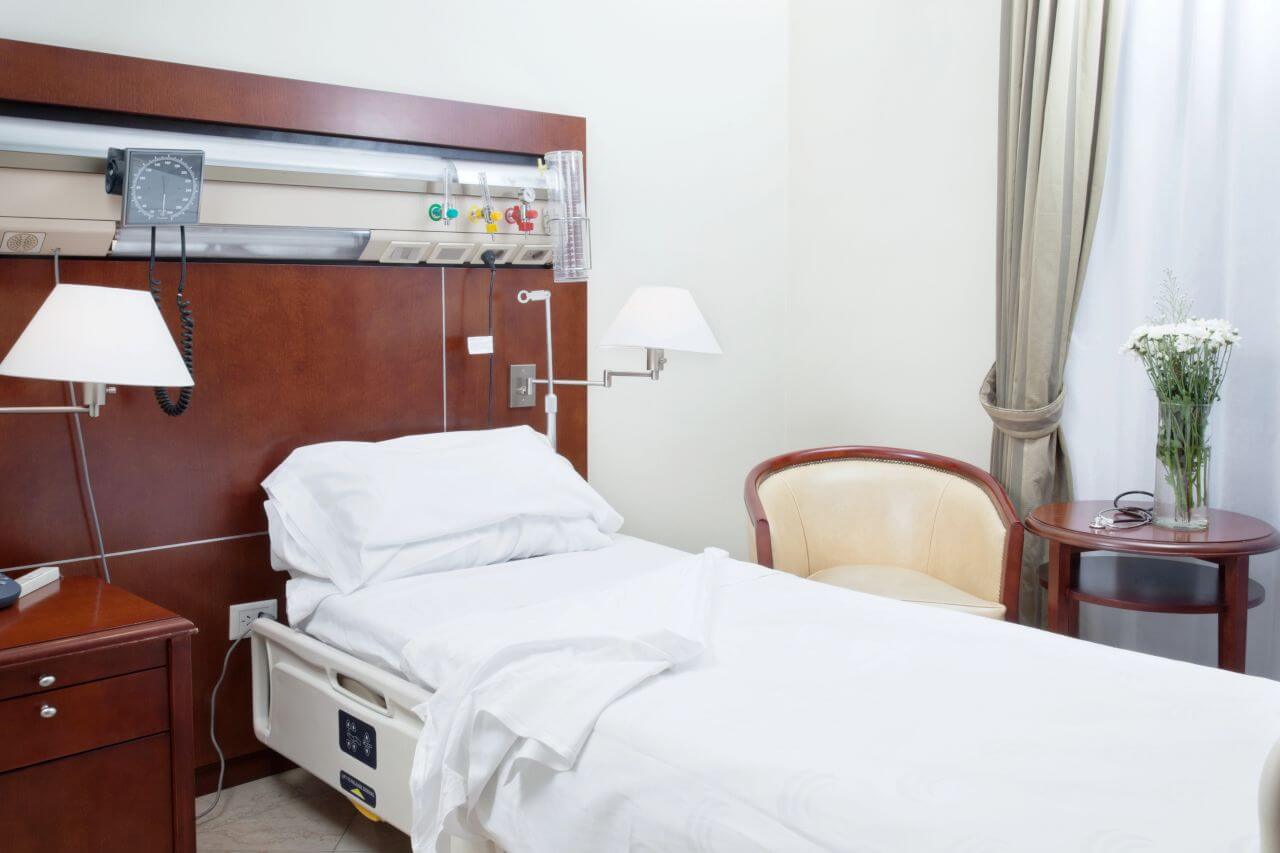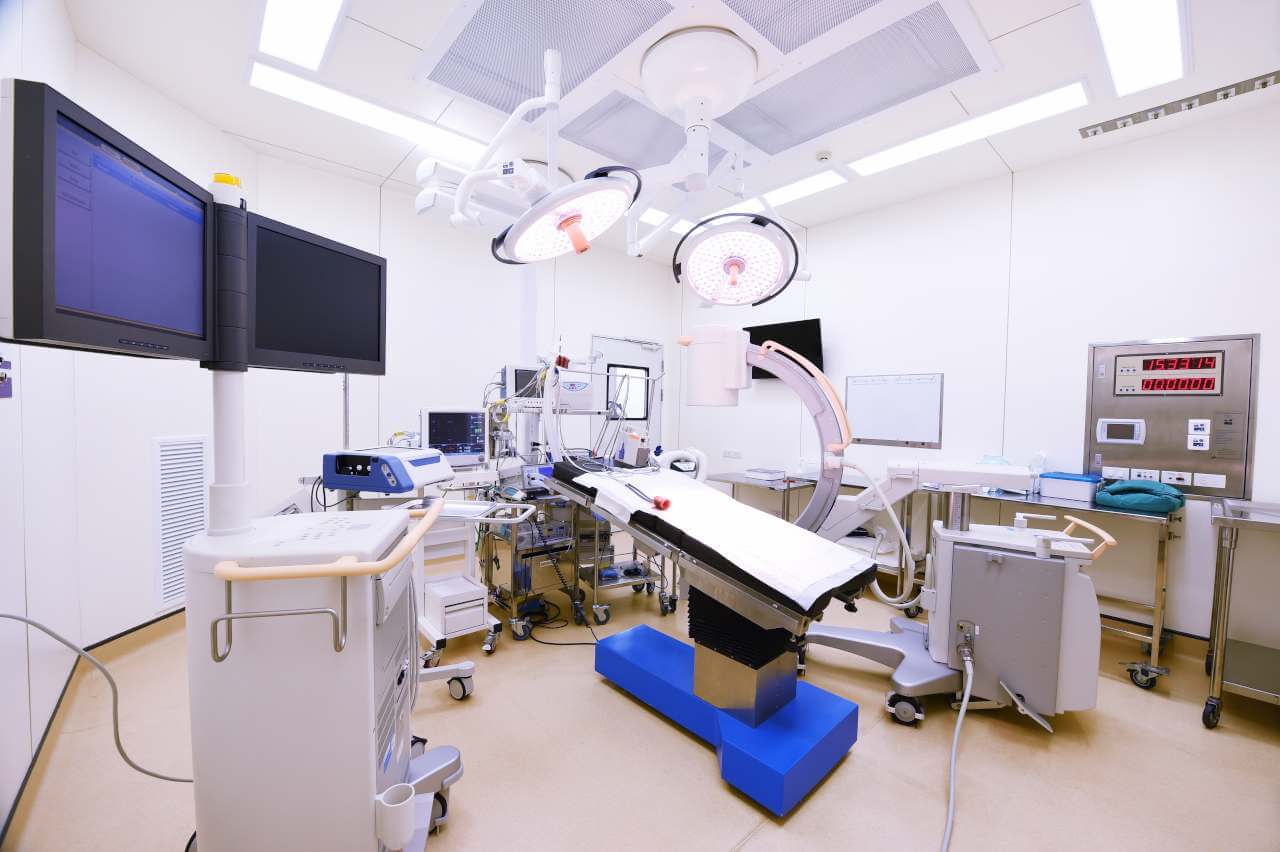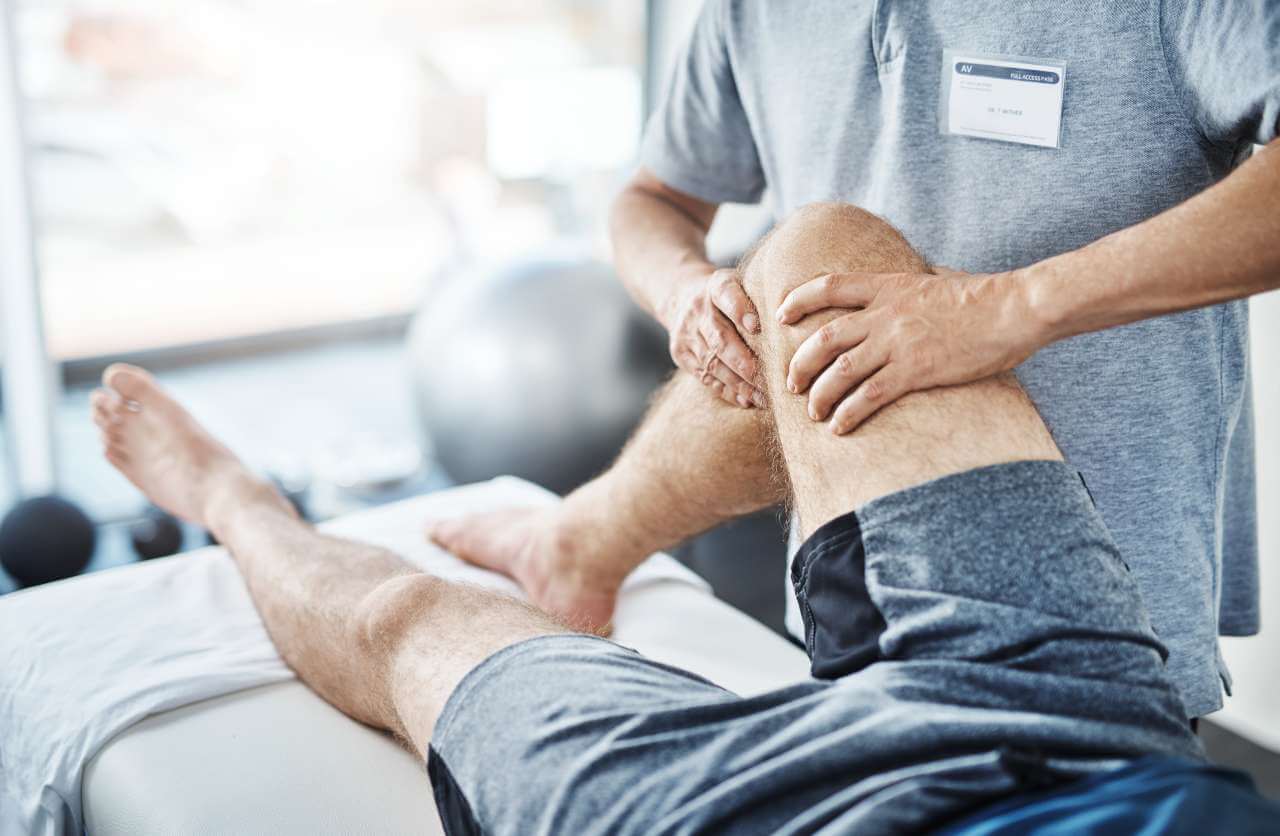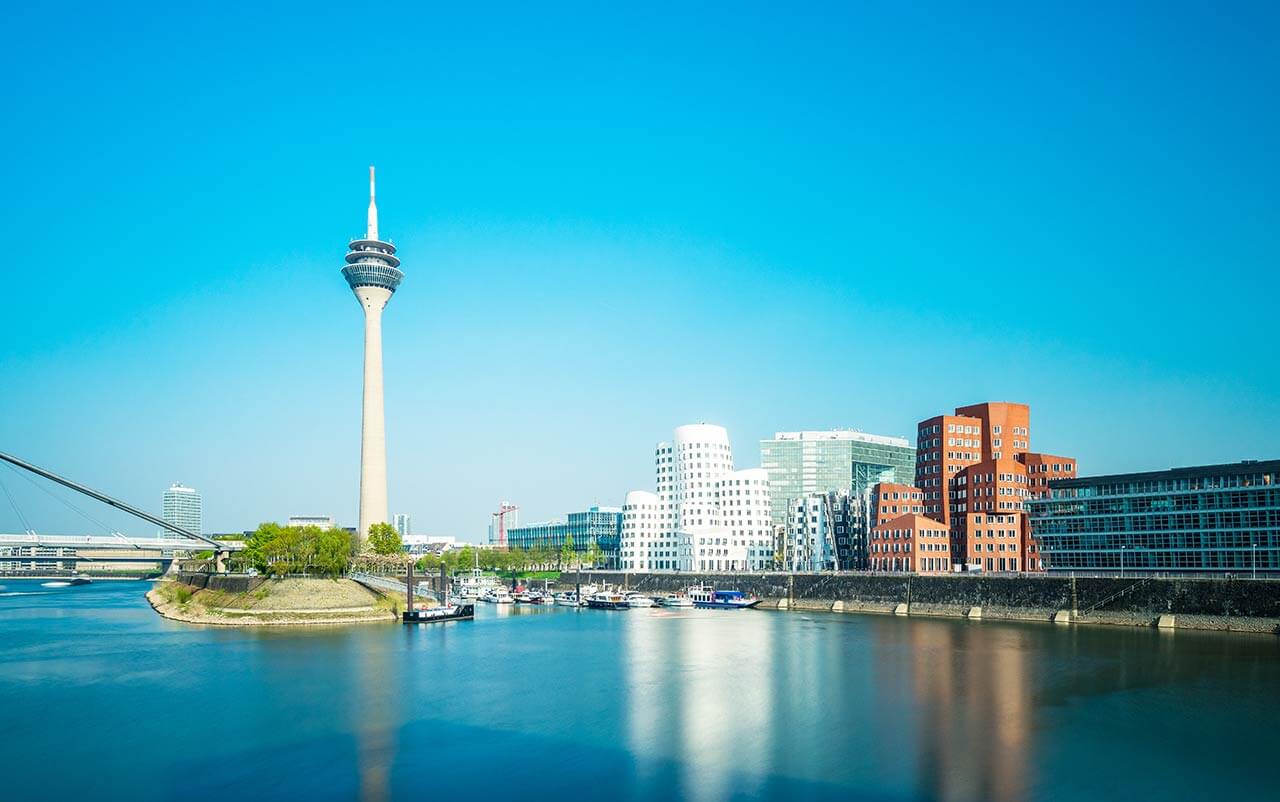
The program includes:
- Initial presentation in the clinic
- Clinical history taking
- General clinical examination
- Laboratory tests:
- Complete blood count
- Biochemical tests
- Inflammatory markers
- Coagulation tests
- X-ray
- Preoperative care
- Hip arthroscopy with harvesting articular cartilage
- Cartilage cultivation in the laboratory (6-8 weeks)
- Arthroscopic implantation of new cartilage
- Physiotherapeutic procedures
- Symptomatic treatment
- Cost of essential medicines
- Nursing services
- Full hospital accommodation
- Elaboration of further recommendations
Indications
- Hip arthritis of I-IV degree
- Area of damaged cartilage up to 1.5-2.5 cm2
How program is carried out
During the first visit, the physician conducts a clinical examination and goes through the results of previous diagnostic procedures. After that, you will undergo the necessary additional examinations, such as the laboratory blood and urine tests, hip joint X-ray, MRI or CT scan of the lower extremity.
The next step is hip arthroscopy to harvest a small amount of your cartilage. Arthroscopy is a minimally invasive procedure that is carried out through 5-6 mm incisions. It lasts about 20-30 minutes and is performed under spinal anesthesia.
The cartilage is sent to the laboratory. Here, within 6-8 weeks, doctors cultivate it and increase its volume. Thanks to this, a new lining of the hip joint can be formed from a small amount of the harvested cartilage. You don’t need to stay in the clinic during this time; you can stay in Germany or travel home.
The final stage of therapy is the implantation of new cartilage into the hip joint, which is another arthroscopic procedure and a 2-3 day hospital stay. If necessary, doctors will simultaneously perform the removal of intra-articular loose bodies or correct other pathologies. After the operation, symptomatic therapy and physiotherapy are carried out, and you will stay under medical supervision for several days. During the final consultation, the attending physician will give you detailed recommendations for further follow-up and rehabilitation.
If you come for treatment from afar, and the flight time home exceeds 4 hours, then you should stay in Germany for 4-5 days. This is necessary to reduce the risk of thrombosis.
Required documents
- Medical records
- X-ray examination, MRI/CT scan (if available)
Service
You may also book:
 BookingHealth Price from:
BookingHealth Price from:
About the department
The Department of Joint Surgery at the Schoen Clinic Duesseldorf provides the full range of medical services in its area of specialization. A team of highly qualified orthopedists with extensive clinical experience performs surgical procedures on joints of any complexity. The department's surgeons operate on patients with hip, knee, shoulder, elbow, and ankle diseases. The surgeons are committed to providing each patient with the most effective and sparing treatment possible, and therefore all surgical procedures are performed using arthroscopic and minimally invasive surgical techniques. In the advanced stages of knee and hip arthrosis, the department's doctors perform joint replacement surgeries in collaboration with the specialists from the certified Arthroplasty Center (EndoCert). The department's medical team always devotes sufficient time to personal consultations and carefully examines the patient's clinical case because surgery is the last-line treatment. The department's doctors follow high international standards of medical care and current clinical protocols in their work, which facilitates excellent results. The Head Physician of the department is PD Dr. med. Hinnerk Baecker.
The department offers a wide range of services for patients with knee diseases. Of particular interest to the department's team of orthopedists is the provision of medical care to patients with knee arthrosis, patellar instability, knee cartilage lesions, cruciate ligament ruptures, meniscal tears, and O-shaped and X-shaped deformities of the lower extremities. The specialists mostly treat patients with knee arthrosis, which causes gradual cartilage destruction. As arthrosis progresses, patients suffer from severe pain and serious movement restrictions. The department's orthopedists use only conservative treatments for the early stages of knee arthrosis, such as therapeutic exercises, physiotherapy, and drug therapy with painkillers. The second-line treatment may include arthroscopic procedures, corrective osteotomies, or surgery to correct cartilage defects. If these surgical procedures do not give the desired results, the department's doctors decide to perform knee arthroplasty. The specialists may perform partial or total knee replacement surgery using low-traumatic surgical techniques on an inpatient basis. Already on the day of the operation, the patients get to their feet with the use of auxiliary aids, and experienced physiotherapists constantly work with them in the postoperative period.
The department's team of doctors is highly skilled in using advanced techniques to correct knee cartilage defects, which often help patients avoid arthroplasty. The department's surgeons successfully perform surgical procedures such as chondroplasty (physical correction of cartilage defects), microfracture (surgery to create tiny holes in the bone to stimulate the growth of new cartilage), cartilage allograft transfer (MCI technique), and autologous chondrocyte transplantation (ACT technique). All of the above surgical interventions are performed using minimally traumatic arthroscopic techniques. The optimal surgical option for the patient is determined based on the severity of damage to the knee cartilage tissue.
The department is also in demand for surgery to treat hip diseases. The surgeons at the medical facility almost daily operate on patients with hip arthrosis, avascular necrosis of the femoral head, hip impingement, and hip dislocations. Hip arthrosis can be treated with conservative therapy (in the early stages), femoral osteotomy, or cartilage tissue transplantation. The last-line treatment is hip arthroplasty, an operation to partially or totally replace the patient's own joint with an artificial prosthesis. Surgery for avascular necrosis of the femoral head, hip impingement, and hip dislocation are usually performed using arthroscopic techniques. The department performs hip arthroplasty and hip arthroscopic procedures on an inpatient basis.
The department's range of surgical options is complemented by the treatment of shoulder diseases such as arthrosis, avascular necrosis of the humeral head, frozen shoulder, shoulder tendonitis, biceps tendon ruptures, shoulder impingement, shoulder instability, and rotator cuff tears. For the treatment of these pathologies, the department's orthopedists perform low-traumatic arthroscopic procedures, the results of which are comparable to those of classical open surgery.
The department's range of surgical services includes the following:
- Surgery for knee diseases
- Surgery for knee arthrosis
- Arthroscopic procedures
- Knee osteotomy
- Surgery for cartilage defect repair: chondroplasty, microfracture, and MCI and ACT techniques
- Knee arthroplasty
- Surgery for patellar instability
- Surgery for knee cartilage lesions
- Surgery for cruciate ligament ruptures
- Surgery for meniscal tears
- Surgery for O-shaped and X-shaped deformities of the lower extremities
- Surgery for knee arthrosis
- Surgery for hip diseases
- Surgery for hip arthrosis
- Femoral osteotomy
- Surgery for cartilage defect repair: chondroplasty, microfracture, and MCI and ACT techniques
- Hip arthroplasty
- Surgery for avascular necrosis of the femoral head
- Surgery for hip impingement
- Surgery for hip dislocations
- Surgery for hip arthrosis
- Surgery for shoulder diseases
- Surgery for shoulder arthrosis
- Arthroscopic procedures
- Shoulder arthroplasty
- Surgery for avascular necrosis of the humeral head
- Surgery for frozen shoulder
- Surgery for shoulder tendonitis
- Surgery for biceps tendon ruptures
- Surgery for shoulder impingement
- Surgery for shoulder instability
- Surgery for rotator cuff tears
- Surgery for shoulder arthrosis
- Surgery for elbow diseases
- Surgery for elbow arthrosis
- Arthroscopic procedures
- Elbow arthroplasty
- Surgery for elbow cartilage lesions
- Surgery for tennis elbow
- Surgery for golfer's elbow
- Surgery for elbow arthrosis
- Surgery for ankle diseases
- Surgery for ankle arthrosis
- Arthroscopic procedures
- Surgery for cartilage defect repair: chondroplasty, microfracture, and MCI and ACT techniques
- Ankle arthroplasty
- Surgery for ankle instability
- Surgery for peroneal tendon dislocations
- Surgery for ankle arthrosis
- Other medical services
Curriculum vitae
Higher Education and Professional Career
- Since 2022 Head Physician, Department of Joint Surgery, Schoen Clinic Duesseldorf.
- 2021 - 2022 Head, Maximum Care Arthroplasty Center and Department of Septic Surgery, University Hospital Bergmannsheil Bochum.
- 2018 - 2022 Head, Maximum Care Arthroplasty Center, University Hospital Bergmannsheil Bochum.
- 2018 - 2022 Antibiotic Stewardship (ABS), Department of Surgery, University Hospital Bergmannsheil Bochum.
- 2017 - 2018 Head, Arthroplasty Center, University Hospital Bergmannsheil Bochum.
- 2015 - 2022 Senior Physician, University Hospital Bergmannsheil Bochum.
- 2012 - 2015 Physician, Center for Musculoskeletal Diseases, Charite University Hospital Berlin.
- 2010 - 2012 Assistant Physician, Center for Musculoskeletal Diseases, Charite University Hospital Berlin.
- 2006 - 2010 Assistant Physician, University Hospital Bergmannsheil Bochum.
- 1998 - 2005 Medical studies, Ludwig Maximilian University of Munich; internships: Cantonal Hospital Bruderholz, Switzerland; Wellington School of Medicine and Health Sciences (University of Otago), New Zealand; Repatriation General Hospital Concord, Australia.
Qualifications
- Board certification in orthopedics and trauma surgery.
- Additional qualifications in special orthopedic surgery and special trauma surgery.
Memberships in Professional Societies and Organizations
- Since 2022 Member of the ComGen Community within the German Arthroplasty Society (AE).
- Since 2022 Member of the German Arthroplasty Society (AE).
- Since 2014 Member of the PRO-IMPLANT Foundation.
- Since 2006 Member of the German Trauma Society (DGU).
Photo of the doctor: (c) Schön Klinik Düsseldorf
About hospital
According to the reputable Focus magazine, the Schoen Clinic Duesseldorf is one of the top medical facilities in North Rhine-Westphalia and is also one of the best Spinal Surgery Centers in Germany.
The Schoen Clinic Duesseldorf is recognized as a leading medical facility that provides high-quality medical care with an emphasis on a humane attitude and understanding of each patient's individual needs. The clinic offers a range of medical specialties, including orthopedics, trauma surgery, spinal surgery, otolaryngology, cardiology, internal medicine, angiology, and vascular surgery.
Patients' health is in the safe hands of a highly qualified team of more than 590 physicians and nurses. The clinic treats more than 48,000 patients annually, which is a testament to the high level of patient satisfaction with medical services.
The clinic has a comfortable infrastructure, including modern diagnostic rooms, laboratories, an emergency medical care unit, therapeutic rooms, and operating rooms adapted for low-traumatic surgical interventions. It is worth noting that the clinic has a Center for Arthroplasty that is certified according to the EndoCert standards by the German Society for Orthopedics and Orthopedic Surgery (DGOOC). This is the most prestigious certificate in this medical field in Germany.
The Schoen Clinic Duesseldorf provides comprehensive medical care in accordance with international clinical standards, always taking into account the individual needs and wishes of each patient. The doctors strive to provide patients with the most effective and sparing treatment possible using the very latest therapeutic techniques.
Photo: (с) depositphotos
Accommodation in hospital
Patients rooms
Patients of the Schoen Clinic Duesseldorf live in comfortable single and double rooms designed in light colors. The rooms are furnished with a comfortable, automatically adjustable bed with an orthopedic mattress, a wardrobe, a table and chair, a TV set, a telephone, a mini-fridge, and a safe. Each patient room has an ensuite bathroom with a shower and toilet. The bathroom has changeable towels, a hairdryer, toiletries, and a bathrobe.
Meals and Menus
The patient and his accompanying person are offered three meals a day: breakfast, lunch, and dinner. The patient and his accompanying person have a choice of three set menus daily.
If, for some reason, you do not eat all the foods, you will be offered an individual menu. Please inform the medical staff about your dietary preferences prior to treatment.
Further details
Standard rooms include:
![]() Toilet
Toilet
![]() Shower
Shower
![]() Wi-Fi
Wi-Fi
![]() TV
TV
Accompanying person
Your accompanying person may stay with you in your patient room or at the hotel of your choice during the inpatient program.
Hotel
You may stay at the hotel of your choice during the outpatient program. Our managers will support you for selecting the best option.





